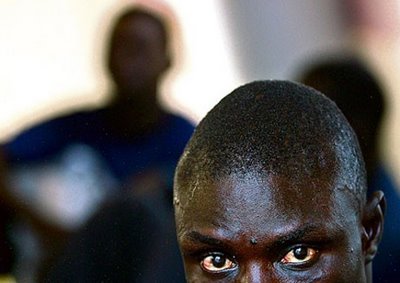(Reuters) - It
was billed as a celebration of its socialist revolution, but when
Mozambique's ruling Frelimo party marked its 50th birthday this week,
Marx came a distant second to Money.
Reflecting their anti-colonial,
revolutionary roots, Frelimo leaders pointedly chose a venue in the
untamed corner of southern Africa where half a century ago guerrillas
launched the uprising that would lead to independence from Portugal in 1975.
But
beyond the symbolism of the location, in the northern province of Cabo
Delgado, the obligatory use of "Comrade" and the AK-47 rifle that still
adorns the national flag, everything at the party congress pointed to
the huge wealth accruing to the political elite in the fast-growing
energy producer.
The venue itself
was a lavish complex of VIP reception rooms and cavernous dining areas,
set amid a village of apartment units, two on-site banks and a hospital
clinic for 2,000 guests.
Just to the north lies the Rovuma Basin, where U.S. energy firm Anadarko and Italy's
Eni are exploring some of the world's biggest untapped natural gas
reserves - an estimated 130 trillion cubic feet, or enough to supply
Western Europe for over a decade.
To
some of Mozambique's 23 million people, the talk of "revolutionary war"
by Frelimo leader and President Armando Guebuza - known as "Mr.
Guebusiness" on account of his huge commercial interests - rings hollow.
"It
is absurd to spend $8 million (5 million pounds) on a week-long
conference when people are starving a block away," said Rudiger Franck, a
hotel owner and Frelimo party member in Pemba, the run-down seaside
town that hosted the seven-day jamboree.
"It gives the impression that the party has lost touch with the reality of life for most of its members."
MINING BOOM
Under
its first president, U.S.-educated sociologist Eduardo Mondlane,
Frelimo struck out on a Marxist course until 1990 when, tired from civil
war and under growing pressure from the West, it renounced socialism.
In
the last decade, mostly under Guebuza, Mozambique has become a hotbed
of foreign mining investment that has lifted economic growth to 7
percent a year and in 2011 made its currency the strongest performer
against the dollar.
Brazil's
Vale , for instance, has poured $2 billion into a coal mine in the
north-western region of Moatize and plans to invest $6.4 billion in the
years to come.
Frelimo says all
Mozambicans stand to benefit, yet in a country where the average person
scrapes by on $400 a year, the opulence of its congress sends a
conflicting message.
"This money
never reaches the people. It remains in Frelimo's pocket," said
Mustagibo Bachir, a Cabo Delgado member of parliament for Renamo,
Frelimo's foe during a 16-year post-independence civil war.
Bachir
sees a worrying precedent in the handling of the ruby and timber
sectors in the north, which remains one of the country's poorest
regions.
"Our people still don't have access to water, food or jobs," he said.
Besides
Renamo, Frelimo is also facing opposition from the upstart Mozambican
Democratic Movement (MDM), run by the 48-year-old mayor of Beira,
Mozambique's second city with a population of half a million people.
Analysts
say elections due in 2014 are too soon for MDM to make serious headway,
but point to its popularity with young, educated and unemployed
Mozambicans as a sign that it could become a force to be reckoned with
later in the decade.
(Writing by Ed Cropley; Editing by Robin Pomeroy)
